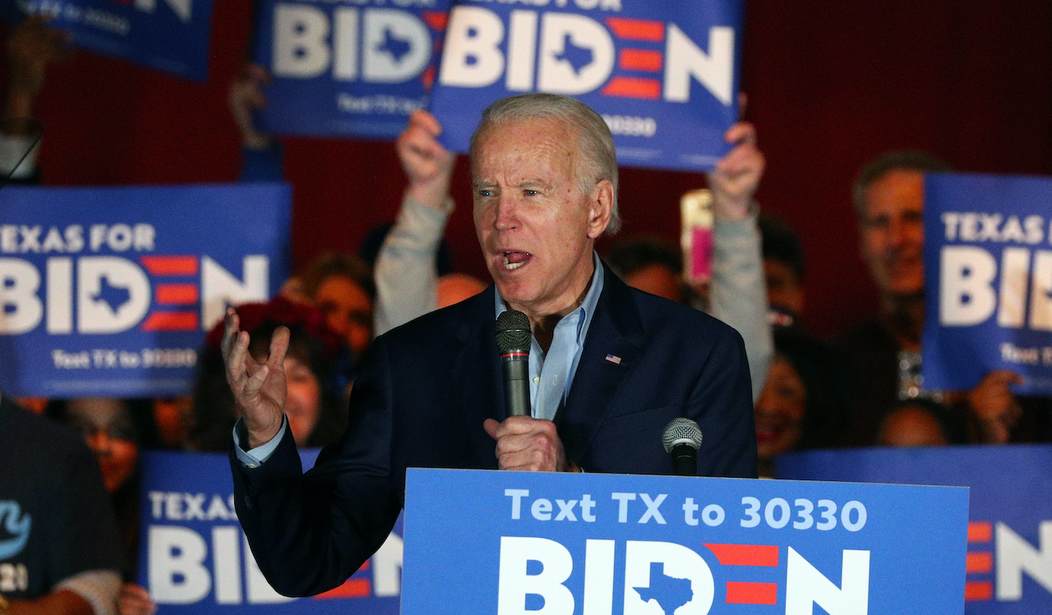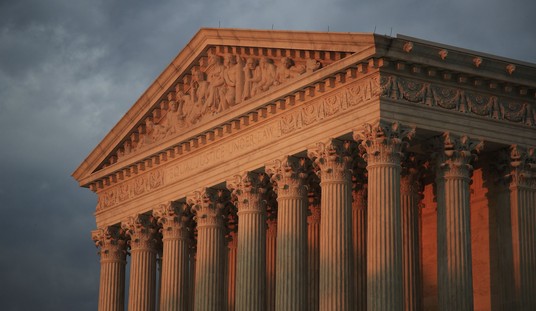Super Tuesday has finally served its intended purpose for the first time since it was invented for the 1988 presidential cycle, 32 years ago.
Those were the days when Democrats controlled practically every Southern legislature and when most Southern whites were, in homage to their Civil War heritage, registered Democrats. Moderate Democratic politicians hit on the idea of setting up a multistate early set of Southern primaries to increase the chances of moderate candidates being better in November than the nominees who lost to former President Richard Nixon and then-President Ronald Reagan.
The strategy worked in 1988, but for the Republicans. Democrats Al Gore and Jesse Jackson each won five Southern states, but Florida and Texas and four non-Southern primaries were won by the eventual nominee, then-Massachusetts Gov. Michael Dukakis.
Meanwhile, Republican then-Vice President George Bush's campaign manager Lee Atwater set up a South Carolina primary on the Saturday before Super Tuesday. Bush's win there was followed by a Super Tuesday near sweep that ensured his nomination -- a feat duplicated by Bob Dole in 1996, George W. Bush in 2000 and John McCain in 2008.
This year, the intentions of Super Tuesday's Democratic inventors were finally, after almost a third of a century, fulfilled -- with a little help from the late Lee Atwater and 28-year South Carolina Rep. James Clyburn, who endorsed Biden three days before the primary.
Previous polling showed black voters abandoning former Vice President Joe Biden for Sen. Bernie Sanders, but Clyburn's credibility with black voters and whites produced Biden's smashing 49% to 20% victory over Sanders.
In a trice -- three days -- hundreds of thousands of Super Tuesday voters seem to have changed their minds in a process that once lasted the whole campaign season. Biden won impressive victories in 10 of the 14 Super Tuesday states. But there are caveats.
Recommended
One is that, just as Republicans were divided between college and non-college voters in 2016, Democrats are divided between old and young voters this year. Exit polls conducted in seven Super Tuesday states showed Biden carrying those over age 45 by an average of 26 points and Sanders carrying those under 45 by an average of 29. Will young voters -- especially young Hispanics and blacks, many of whom preferred Sanders -- vote in November? Or vote for President Donald Trump?
Biden is emerging from Super Tuesday with more delegates than Sanders, though California, as usual, may take weeks to count votes and allocate delegates. That leaves Biden just short of being a certain bet for the nomination.
He looks likely to rack up a big delegate edge in elderly Florida, but only three more Southern states with large black percentages (Georgia, Louisiana, Mississippi) have yet to vote. The industrial states crucial in November 2016 (Pennsylvania, Ohio, Michigan, Wisconsin) have yet to weigh in, and they remain something of a mystery.
That said, with Michael Bloomberg having left the race, the possibility that no candidate will enter the convention with a majority of delegates looks to be just about zero.
As for the general election, it's not clear that Biden can win Barack Obama-type majorities among blacks, and the Super Tuesday results show him weaker among Hispanics than Bernie Sanders. Nor is it clear that Democrats can replicate their 2018 surge among affluent suburbanites. Biden did carry high-income suburbs in Virginia, North Carolina and Texas but lost those around Denver and Austin. Also, initial House race results in California suggest Democrats risk losing some suburban congressional seats they gained in 2018.
Even while winning, Biden has shown obvious flaws as a candidate. His lifelong prolixity seems increasingly in danger of morphing into incoherence. But of course, Sanders has his own flaws -- why keep defending Fidel Castro? -- and so, obviously, does Trump.
These flaws are evidence for my oft-voiced thesis that the presidential nominating process is the weakest part of our political system. Super Tuesday played its intended role, and James Clyburn's Biden endorsement was timed with the brilliance of Lee Atwater. But as FiveThirtyEight's Nate Silver points out, happenstance also played a role: the inability of Iowa Democrats to determine a caucus winner and the release of a single poll that qualified Michael Bloomberg for what proved to be his disastrous South Carolina debate performance.
A final word about California. It joined Super Tuesday this year, supposedly in order to be noticed by candidates and the press. Instead it got saturated with Bloomberg ads (no one else could afford many), quietly hosted multiple candidate fundraisers and is now taking weeks to count its votes. Go back to June!
Michael Barone is a senior political analyst for the Washington Examiner, resident fellow at the American Enterprise Institute and longtime co-author of The Almanac of American Politics.

























Join the conversation as a VIP Member